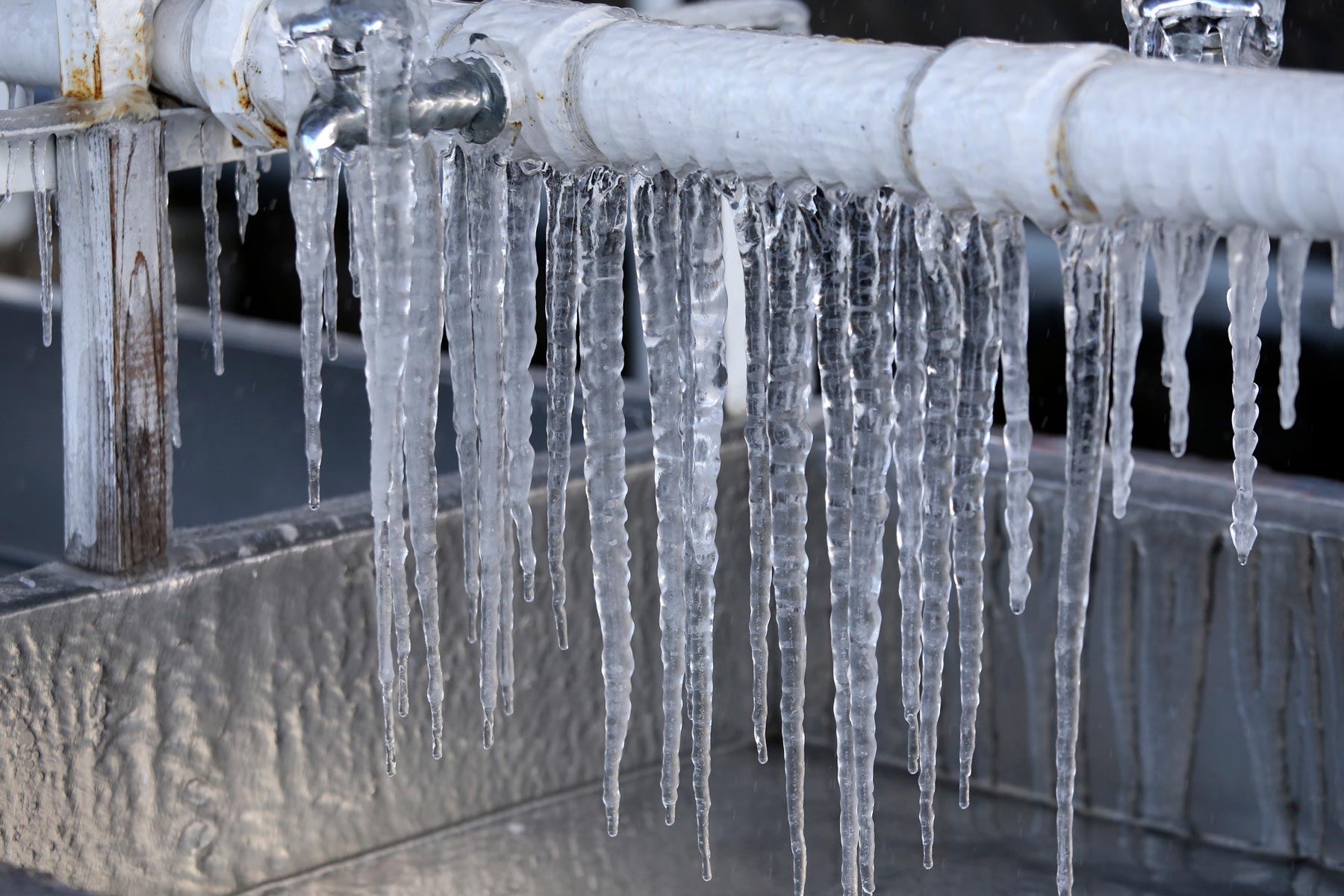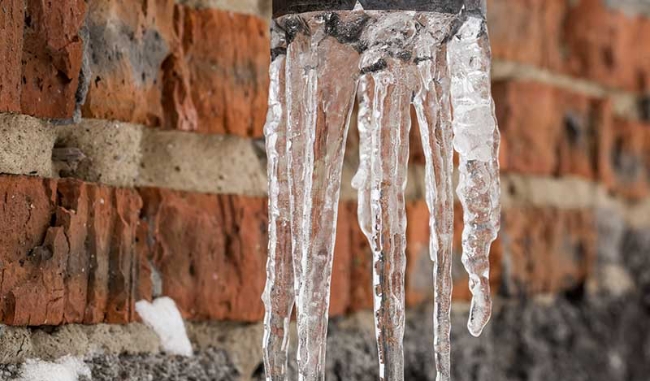Ways to Keep Your Pipes from Cold Weather Damage: Important Guidance
Ways to Keep Your Pipes from Cold Weather Damage: Important Guidance
Blog Article
We've unearthed this great article involving How to prepare your home plumbing for winter weather directly below on the internet and felt it made good sense to write about it with you in this article.

Cold weather can ruin your plumbing, specifically by freezing pipelines. Here's just how to avoid it from occurring and what to do if it does.
Intro
As temperatures decrease, the danger of icy pipes increases, potentially resulting in expensive fixings and water damage. Recognizing exactly how to stop icy pipes is vital for home owners in chilly climates.
Prevention Tips
Shielding vulnerable pipelines
Wrap pipes in insulation sleeves or utilize warmth tape to safeguard them from freezing temperatures. Focus on pipes in unheated or exterior locations of the home.
Heating methods
Keep interior spaces adequately heated up, particularly locations with plumbing. Open closet doors to permit cozy air to distribute around pipelines under sinks.
Exactly how to identify icy pipes
Try to find reduced water flow from taps, uncommon odors or sounds from pipes, and noticeable frost on subjected pipelines.
Long-Term Solutions
Architectural modifications
Take into consideration rerouting pipelines away from outside walls or unheated areas. Include additional insulation to attic rooms, basements, and crawl spaces.
Upgrading insulation
Invest in premium insulation for pipelines, attic rooms, and walls. Correct insulation aids keep constant temperature levels and decreases the danger of icy pipes.
Protecting Outside Plumbing
Garden hoses and outside taps
Disconnect and drain pipes garden hoses prior to winter season. Install frost-proof faucets or cover outside taps with insulated caps.
Recognizing Icy Pipelines
What creates pipelines to freeze?
Pipes freeze when exposed to temperatures listed below 32 ° F (0 ° C) for prolonged durations. As water inside the pipes freezes, it broadens, putting pressure on the pipe wall surfaces and potentially triggering them to break.
Dangers and problems
Icy pipelines can lead to water interruptions, residential property damage, and expensive repairs. Ruptured pipelines can flood homes and cause considerable architectural damage.
Signs of Frozen Piping
Determining icy pipes early can avoid them from bursting.
What to Do If Your Pipelines Freeze
Immediate actions to take
If you presume frozen pipelines, maintain faucets open to ease pressure as the ice melts. Utilize a hairdryer or towels taken in warm water to thaw pipes gradually.
Final thought
Avoiding icy pipes needs positive measures and fast actions. By comprehending the reasons, signs, and safety nets, home owners can secure their pipes during winter.
Helpful Tips to Prevent Frozen Pipes this Winter
UNDERSTANDING THE BASICS: WHY PIPES FREEZE AND WHY IT’S A PROBLEM
Water freezing inside pipes is common during the winter months, but understanding why pipes freeze, and the potential problems it can cause is crucial in preventing such incidents. This section will delve into the basics of why pipes freeze and the associated problems that may arise.
THE SCIENCE BEHIND FROZEN PIPES
When water reaches freezing temperatures, it undergoes a physical transformation and solidifies into ice. This expansion of water as it freezes is the primary reason pipes can burst. As the water inside the pipe freezes, it expands, creating immense pressure on the walls. If the pressure becomes too great, the pipe can crack or rupture, leading to leaks and water damage.
FACTORS THAT CONTRIBUTE TO PIPE FREEZING
Low Temperatures: Extremely cold weather, especially below freezing, increases the risk of pipes freezing. Uninsulated or Poorly Insulated Pipes: Pipes located in unheated areas, such as basements, crawl spaces, or attics, are more prone to freezing. Insufficient insulation or lack of insulation altogether exacerbates the problem. Exterior Wall Exposure: Pipes running along exterior walls are susceptible to freezing as they encounter colder temperatures outside. Lack of Heating or Temperature Regulation: Inadequate heating or inconsistent temperature control in your home can contribute to frozen pipes. PROBLEMS CAUSED BY FROZEN PIPES
- Pipe Bursting: As mentioned earlier, the expansion of water as it freezes can cause pipes to burst, resulting in significant water damage.
- Water Damage: When pipes burst, it can lead to flooding and water damage to your property, including walls, ceilings, flooring, and personal belongings.
- Structural Damage: Prolonged exposure to water from burst pipes can compromise the structural integrity of your home, leading to costly repairs.
- Mold and Mildew Growth: Excess moisture from water damage can create a favorable environment for mold and mildew growth, posing health risks to occupants.
- Disrupted Water Supply: Frozen pipes can also result in a complete or partial loss of water supply until the issue is resolved.
WHY CERTAIN PIPES ARE MORE PRONE TO FREEZING
- Location: Pipes located in unheated or poorly insulated areas, such as basements, crawl spaces, attics, or exterior walls, are at higher risk of freezing.
- Exterior Pipes: Outdoor pipes, such as those used for irrigation or exposed plumbing, are particularly vulnerable to freezing as they are directly exposed to the elements.
- Supply Lines: Pipes that carry water from the main water supply into your home, including the main water line, are critical to protect as freezing in these lines can affect your entire plumbing system.
- Underground Pipes: Pipes buried underground, such as those connected to sprinkler systems or outdoor faucets, can be susceptible to freezing if not properly insulated.
https://busybusy.com/blog/helpful-tips-to-prevent-frozen-pipes-this-winter/

I was made aware of that report on How To Avoid Freezing Pipes from a good friend on our other web blog. Sharing is nice. You won't know, you could be doing someone a favor. Thanks for going through it.
Get A Free Estimate Report this page